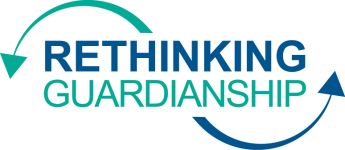Guest Blogger: Philip Woodward, Systems Change Manager, North Carolina Council on Developmental Disabilities (NCCDD)
March is Developmental Disabilities Awareness Month, and this year’s theme is “Beyond the Conversation.” You can learn more at the National Association of Councils on Developmental Disabilities (NACDD) website here:
What does “Beyond the Conversation” really mean? Having majored in English at the College of William & Mary, I can think about this phrase on multiple levels. First of all, we want to have conversations with people with intellectual and other developmental disabilities (I/DD). We want to get to know them better and understand what is important to them. We don’t want to be making important decisions about I/DD without consulting with them. “Nothing about us without us” is a mantra in the I/DD community.
“Beyond the Conversation” can also refer to not just talking but to acting upon our words. If government officials say they want people with I/DD to participate fully in their communities but then provide no funding for community living services, then people with I/DD may find it difficult to live in a home of their choice in the community. Once we get to know people with I/DD through our conversations with them, it is important to create a system where they can not only just live but actually flourish in their communities. When this happens, we are going “Beyond the Conversation” and creating true systems change.
NCCDD’s Making Alternatives to Guardianship a Reality in North Carolina initiative is promoting Supported Decision-Making and other less restrictive alternatives to full guardianship. When we get to know people with I/DD, we learn how capable they are of making their own decisions about a great variety of things: what to wear that day, what to eat, what to spend their money on, what they want to do, and where to live are just a few examples. They may need some support, just as we all do. I don’t go out and buy a new car without talking to my wife, Lyla, about what type of car we should get. She supports me in making big decisions like these. I don’t even buy dinner without asking what Lyla and our kids want to eat.
Interestingly, when people without disabilities are making decisions for people with disabilities, having conversations with these people is very important. If you think about it, government officials and legislators who consult with people with I/DD before deciding how to spend public money are benefitting from Supported Decision-Making, and this decision-making process will help them spend the money more wisely. They are having a conversation with people with I/DD, and then they are going “Beyond the Conversation” by acting on what they learned from engaging people with I/DD in the decision-making process. When this happens, people with I/DD are truly exercising their rights and making their voices heard. Isn’t that what we all want?

